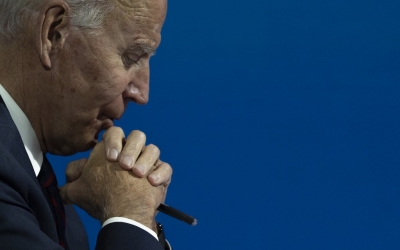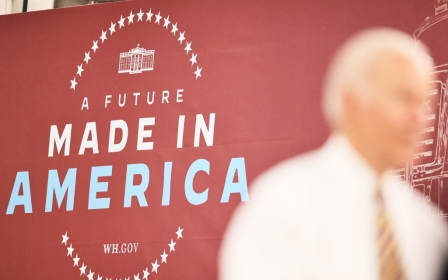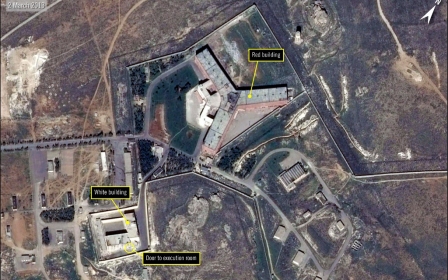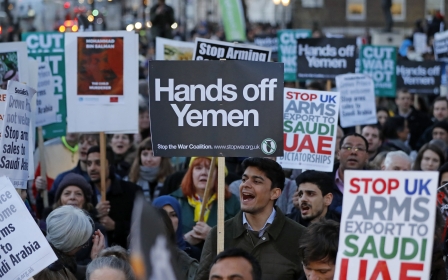Biden planning shift in arms policy to add weight to human rights concerns
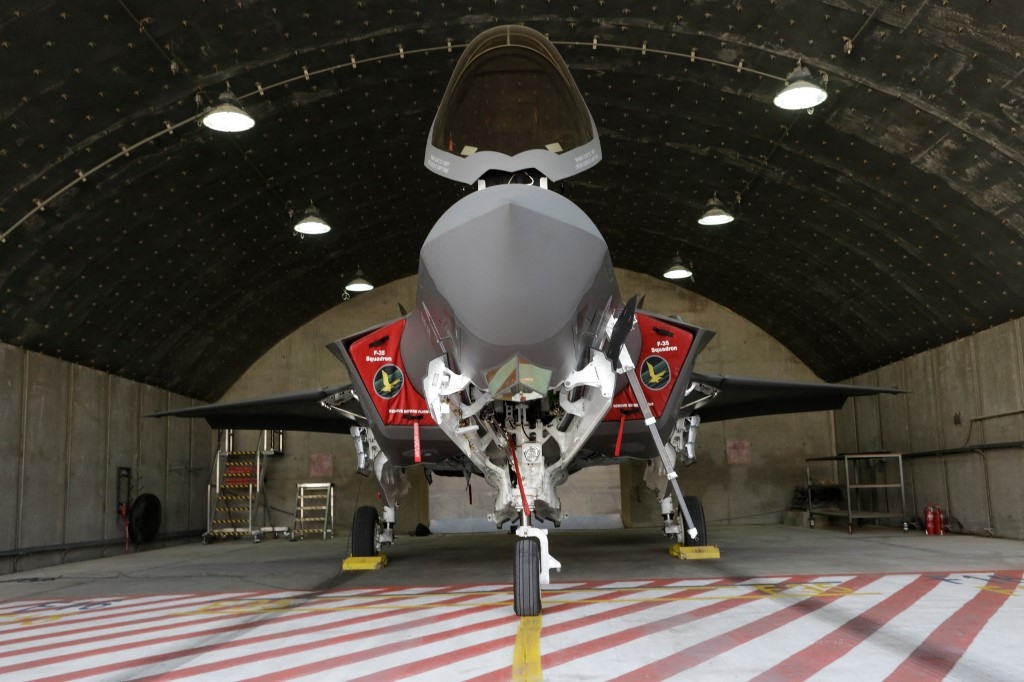
US President Joe Biden's administration is preparing an overhaul of arms export policy to increase the emphasis on human rights, and possibly depart from former President Donald Trump's prioritisation of economic benefits to American defence contractors.
A State Department spokesperson told Middle East Eye on Thursday that the administration is developing a revision of its Conventional Arms Transfer (CAT) policy that would "take a holistic approach to arms transfer reviews and adjudicate decisions on a case-by-case basis to ensure balanced application of criteria are applied to all potential transfers".
"In this policy, we will also more robustly discuss the connection between human rights and arms transfers as well as highlight the importance of promoting transfers when they are in the US national interest and in line with the CAT policy," the spokesperson said.
A congressional source told Reuters on Wednesday that he expected any policy change would have the most impact on sales of smaller weapons such as assault rifles and surveillance equipment, which can be used by police or paramilitary forces against domestic populations.
The revamped policy could potentially affect sales to a number of countries that are accused of human rights abuses, including Saudi Arabia; Egypt; the United Arab Emirates (UAE); and Israel. However, the congressional source said the details of the policy are still being finalised, and it is unclear what parameters would be put in place.
"Overall, the Biden people seem to be in the same mode as the Trump people in promoting arms exports," a congressional aide told the news agency.
The US is one of the world's biggest arms exporters, selling over $100bn in weapons, services and training a year. In 2020, its total arms exports rose to $175bn.
During his presidency, Trump introduced in 2018 a new version of the CAT policy that gave commercial concerns as much weight as human rights in deciding whether to approve weapons sales.
The former president himself had promoted arms sales during meetings with foreign leaders and used the dealings as a way of sidestepping major human rights concerns.
Trump vetoed an attempt by Congress to block a massive $8bn sale of weapons to Saudi Arabia and the UAE, amid concerns over the Yemen war and the murder of Middle East Eye and Washington Post columnist Jamal Khashoggi.
Trump said Riyadh was spending billions "on the purchase of military equipment from Boeing, Lockheed Martin, Raytheon and many other great US defense contractors" and cancelling the deal would be "foolish".
Human rights over economic gain
Advocates of a stronger emphasis on human rights said a shift in focusing more on human rights could affect sales to countries like Saudi Arabia and the UAE, given that pressure from the progressive wing of the Democratic Party over the toll on civilians in the Saudi-led coalition's bombing campaign in Yemen led to Biden announcing an end to US support to offensive operations.
However, Biden said Washington would continue to support the kingdom in maintaining its security.
"A new US approach to arms sales is sorely needed. We must move beyond approaching arms sales as purely a transaction," Rachel Stohl, vice president at the Stimson Center, told Reuters.
The administration has received heavy criticism for a number of arms sales this year to countries accused of abuses.
In February, the US approved a $200m arms sale to Egypt around the same day that members of Egyptian-American activist Mohamed Soltan's family were arrested by Cairo authorities.
In May, the US approved a $735m weapons sale to Israel. An 11-day Israeli military operation on the Gaza Strip in May resulted in the killing of at least 248 Palestinians and the destruction of a number of buildings, including schools, medical centres and media offices.
Last month, a bipartisan group of senators introduced legislation that would reform how major arms sales are reviewed.
Under current US law, all arms sales are automatically approved unless there is a resolution with a veto-proof majority in both Houses of Congress to block the sale. If passed, the bill would require each major sale to be authorised by Congress.
Middle East Eye propose une couverture et une analyse indépendantes et incomparables du Moyen-Orient, de l’Afrique du Nord et d’autres régions du monde. Pour en savoir plus sur la reprise de ce contenu et les frais qui s’appliquent, veuillez remplir ce formulaire [en anglais]. Pour en savoir plus sur MEE, cliquez ici [en anglais].


